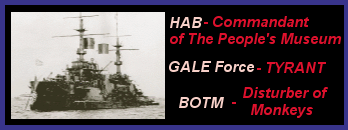http://www.hood.army.mil/history/history_hood.htm
History
Fort Hood was named for the famous Confederate General John Bell Hood, an outstanding leader who gained recognition during the Civil War as the commander of Hood's Texas Brigade.
http://www.bragg.army.mil/history/BraxtonBragg.htm
Fort Bragg was named in honor of a native North Carolinian....
...
At the outbreak of the Civil War, he was called from private life into the Confederate Army and was made a Brigadier General. Actively engaged in the two day Battle of Shiloh, in April, 1862, he further exemplified his military genius, and on the death of General Albert S. Johnson was elevated to the rank of full General. His most notable success, the defeat of General Rosecrans at the Battle of Chickamauga, was followed by his own defeat at Chattanooga in November 1863.
....
Thus, Fort Bragg bears the name of a "brave, resourceful, hard-bitten fighting man...a soldier's soldier...a fighting man who saw action in three wars and won distinction in each of them"...GENERAL BRAXTON BRAGG.
http://www.lee.army.mil/history.html
When construction work ended, there were accommodations for 60,335 men. On July 15, 1917, the War Department announced that the camp would be named in honor of General Robert E. Lee (1807- 1870), the most famous of the Confederate Civil War commanders.
http://www.aphill.army.mil/history.asp
Fort Named for Distinguished Confederate Commander
The installation was named in honor of Lt. Gen. Ambrose Powell Hill, a Virginia native who distinguished himself as a Confederate commander during the Civil War. Rising from colonel to major general in three months, General Hill took command of one of Lee’s three corps in 1863. Two years later, as Grant’s forces laid siege to Petersburg, Va., General Hill was mortally wounded as he rode his stallion, Champ, to the front. He had not yet reached his 40th birthday.
One week later, Lee surrendered to Grant at Appomattox. A fortnight later, John Wilkes Booth was killed at the Garrett farmhouse, which was situated just beyond the present boundaries of the fort.






